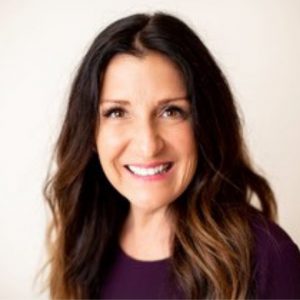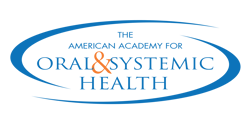Brain Health
CE Available: 2
CME Coming Soon!
Modules
Presented by: Judith Miklossy, MD, PhD
CE Available: 1
Click Here to Watch
Bio
Judith Miklossy received her MD, PhD and certificates of specialization in neurology, psychiatry and psychotherapy (EU and AELE conform) at the School of Medicine, University of Debrecen, Hungary. She has received the title of Privatdozent and Master of Education and Research (MER) (equivalent of DSc and assistant Professor) and the certificate of specialization in neuropathology at the University of Lausanne and Swiss Medical Federation (FMH). She was head of Neurodegeneration research group at the University Institute of Pathology (CHUV, Lausanne) for over ten years. She has done molecular biology research and participated in the introduction of Alzheimer’s research in Temple University, Philadelphia, USA. She headed the neuropathology division of the Kinsmen Laboratory of Neurological Research, The University of British Columbia, Vancouver, Canada. She is actively involved in research on Alzheimer's disease, other neurodegenerative diseases and Lyme disease for more than 25 years. She is on the Scientific Advisory Board of the Canadian Lyme Foundation and the Deutsche Borreliosis Gesellschaft. She is founder of the Alzheimer's Prevention International Foundation and Director of the foundation and of the International Alzheimer Research Center in Switzerland.
Presented by:Anne O. Rice RDH
CE Available: 1
Click Here to Watch
Course Description
Every 65 seconds someone in the United States is diagnosed with Alzheimer’s disease which is the most common form of dementia. It is the 6th leading cause of death and a profound human tragedy. 71 million baby boomers are heading for the risk age and this will become the biggest epidemic in medical history. Dementia is not inevitable, and scientists agree the cure will be in prevention. We are prevention specialists and what we do in our practice may become the movement for change in the dementia crisis. Learn how to protect your most precious organ, the brain, and how we in dentistry can not only impact dementia with simple assessments but empower our patients to make lifestyle changes that will improve their brain function.
Learning Objectives
- Determine how existing dental care practices can be adapted to educate patients on the risk factors of and preventative measures against Alzheimer’s Disease through the assessment protocols healthcare providers use daily that can protect and improve brain health.
- Understand how Alzheimer disease is associated with different etiologies and pathophysiological processes including the current hypothesis of bacteria, yeast and herpes virus setting off a cascade of events leading to the disease and critical sleep activities related to memory storage and brain toxin clearing.
Speaker Bio
 Anne Rice is an articulate and trusted expert of oral-systemic link research and education. With more than 30 years of clinical dental hygiene practice, she has witnessed the impact of periodontal inflammation on a wide range of diseases and conditions. This expertise led her to found Oral Systemic Seminars, fueling her drive to inform colleagues and the public through coaching, speaking, and writing. Anne graduated from Wichita State University then continued her studies earning a bachelor’s degree in Oral Health Promotion and is a graduate of the Bale/ Doneen Preceptorship course for cardiovascular disease prevention for healthcare practitioners. Her deep passion regarding dementia, specifically Alzheimer’s Disease, has led her to dedicate enormous amounts of time and study to researching the various ways in which oral health care providers can help to prevent this harrowing disease.
Anne Rice is an articulate and trusted expert of oral-systemic link research and education. With more than 30 years of clinical dental hygiene practice, she has witnessed the impact of periodontal inflammation on a wide range of diseases and conditions. This expertise led her to found Oral Systemic Seminars, fueling her drive to inform colleagues and the public through coaching, speaking, and writing. Anne graduated from Wichita State University then continued her studies earning a bachelor’s degree in Oral Health Promotion and is a graduate of the Bale/ Doneen Preceptorship course for cardiovascular disease prevention for healthcare practitioners. Her deep passion regarding dementia, specifically Alzheimer’s Disease, has led her to dedicate enormous amounts of time and study to researching the various ways in which oral health care providers can help to prevent this harrowing disease.
Other Courses of Interest
Webinar Date: Friday, April 19, 2019
Presented by Anne O. Rice RDH
CE Available: 1
Course Description
Every 65 seconds someone in the United States is diagnosed with Alzheimer’s disease which is the most common form of dementia. It is the 6th leading cause of death and a profound human tragedy. 71 million baby boomers are heading for the risk age and this will become the biggest epidemic in medical history. Dementia is not inevitable, and scientists agree the cure will be in prevention. We are prevention specialists and what we do in our practice may become the movement for change in the dementia crisis. Learn how to protect your most precious organ, the brain, and how we in dentistry can not only impact dementia with simple assessments but empower our patients to make lifestyle changes that will improve their brain function.
Learning Objectives
- Determine how existing dental care practices can be adapted to educate patients on the risk factors of and preventative measures against Alzheimer’s Disease through the assessment protocols healthcare providers use daily that can protect and improve brain health.
- Understand how Alzheimer disease is associated with different etiologies and pathophysiological processes including the current hypothesis of bacteria, yeast and herpes virus setting off a cascade of events leading to the disease and critical sleep activities related to memory storage and brain toxin clearing.
Anne O. Rice, RDH
 Anne Rice is an articulate and trusted expert of oral-systemic link research and education. With more than 30 years of clinical dental hygiene practice, she has witnessed the impact of periodontal inflammation on a wide range of diseases and conditions. This expertise led her to found Oral Systemic Seminars, fueling her drive to inform colleagues and the public through coaching, speaking, and writing. Anne graduated from Wichita State University then continued her studies earning a bachelor’s degree in Oral Health Promotion and is a graduate of the Bale/ Doneen Preceptorship course for cardiovascular disease prevention for healthcare practitioners. Her deep passion regarding dementia, specifically Alzheimer’s Disease, has led her to dedicate enormous amounts of time and study to researching the various ways in which oral health care providers can help to prevent this harrowing disease.
Anne Rice is an articulate and trusted expert of oral-systemic link research and education. With more than 30 years of clinical dental hygiene practice, she has witnessed the impact of periodontal inflammation on a wide range of diseases and conditions. This expertise led her to found Oral Systemic Seminars, fueling her drive to inform colleagues and the public through coaching, speaking, and writing. Anne graduated from Wichita State University then continued her studies earning a bachelor’s degree in Oral Health Promotion and is a graduate of the Bale/ Doneen Preceptorship course for cardiovascular disease prevention for healthcare practitioners. Her deep passion regarding dementia, specifically Alzheimer’s Disease, has led her to dedicate enormous amounts of time and study to researching the various ways in which oral health care providers can help to prevent this harrowing disease.
Topics
- Supplementation
- Food Sensitivities that Create Chronic Inflammation
- Gaining pH Balance
Course Menu
- Periodontal Disease and Biofilm Diseases of the Mouth
- Metabolic Health
- Lifestyle
- Cancer and Autoimmune Disorders
- Adult Airway and Sleep Disorders
- Pediatric Health, Airway, Sleep Disorders, and Breathing
- Behavior Influences, Increasing Health Literacy, and the Psychology of Healing
- Environmental Influences
- Cardiovascular Health
- Genetics
- Brain Health
- Gut Health and Microbiome
- Success for the Oral Systemic Practice
How to obtain CE Credit
For courses that are available for Dental Continuing Education Credit (CE), you must watch the full recording (skipping ahead will not count). Once you have watched the full recording, the CE code will automatically populate within your AAOSH dashboard under the "Continuing Education" tab. This continuing education area will keep track of all CE received from AAOSH online courses.
How to obtain CME Credit
Continuing Medical Education Credit (CME) is coming soon!
